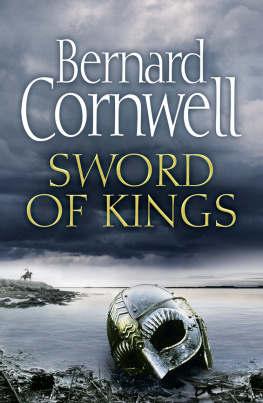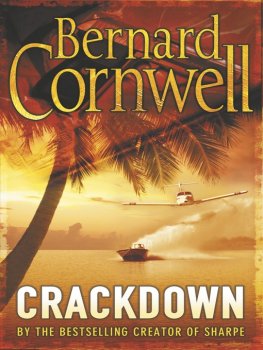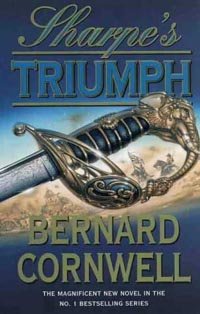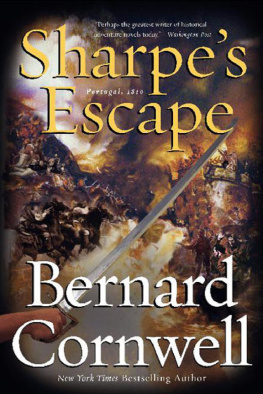Bernard Cornwell - Sea Lord
Here you can read online Bernard Cornwell - Sea Lord full text of the book (entire story) in english for free. Download pdf and epub, get meaning, cover and reviews about this ebook. genre: History. Description of the work, (preface) as well as reviews are available. Best literature library LitArk.com created for fans of good reading and offers a wide selection of genres:
Romance novel
Science fiction
Adventure
Detective
Science
History
Home and family
Prose
Art
Politics
Computer
Non-fiction
Religion
Business
Children
Humor
Choose a favorite category and find really read worthwhile books. Enjoy immersion in the world of imagination, feel the emotions of the characters or learn something new for yourself, make an fascinating discovery.

- Book:Sea Lord
- Author:
- Genre:
- Rating:4 / 5
- Favourites:Add to favourites
- Your mark:
- 80
- 1
- 2
- 3
- 4
- 5
Sea Lord: summary, description and annotation
We offer to read an annotation, description, summary or preface (depends on what the author of the book "Sea Lord" wrote himself). If you haven't found the necessary information about the book — write in the comments, we will try to find it.
Sea Lord — read online for free the complete book (whole text) full work
Below is the text of the book, divided by pages. System saving the place of the last page read, allows you to conveniently read the book "Sea Lord" online for free, without having to search again every time where you left off. Put a bookmark, and you can go to the page where you finished reading at any time.
Font size:
Interval:
Bookmark:
PENGUIN BOOKS
SEA LORD
Bernard Cornwell was born in London, raised in Essex, and now lives in the USA. He is the author of the Arthurian series, The Warlord Trilogy; The Starbuck Chronicles on the American Civil War; Stonehenge; The Grail Quest series, set during the Hundred Years War; over twenty Sharpe novels; and most recently, The Saxon Stories, set during King Alfreds defence of England against the Vikings. For more information about Bernard Cornwell and his books, visit his website www.bernardcornwell.net.
BERNARD CORNWELL
SEA LORD

PENGUIN BOOKS
First published by Michael Joseph 1989
Published in Penguin Books 1993
Copyright Rifleman Productions Ltd, 1989
All rights reserved
It is inevitable that some boat names in Sea Lord will coincide with the names of real boats. Nevertheless every vessel in this book, like every character, is entirely fictional.
SEA LORD is dedicated to
Diedree and Oscar Morong,
Masters under God of the good vessel
Diedree-Anne.

Part One
I didnt want to go home. Id once sworn Id never go home, yet here I was, plugging across the Western Approaches on a flooding tide in a filthy night.
In seven years I had been home just once. That first return had been a family duty and had turned into a family disaster. I had endured as long as I could; then, overwhelmed by responsibilities and harried by lawyers, I had sailed away. It was then that I had sworn never to return to England.
Now, four years later, I was going home.
And again it was duty which drew me back; family duty.
It certainly wasnt homesickness, for in seven years of ocean wandering I had never missed England. I tried to persuade myself it was curiosity that took me north into the cold Channel waters, but curiosity needs the provocation of affection or hate, and I felt neither for my family. Yet now, if the message was true, my family wanted my return and so, dutifully, perhaps guiltily, I was going home.
The message had reached me in English Harbour, Antigua. It came from my familys lawyers who had left the message with my London bank. Id telexed the bank, hoping some dividends had taken me out of the red, but instead of money the bank had sent me news that my mother was sick and wanted to see me. It was the first time in four years that my mother had noticed my existence or, to be fair, that I had remembered hers. I didnt want to go, but there was a pathetic appeal in the message and so I slipped my mooring and turned Sunflowers bows to the eastern sea.
I didnt hurry home. Indeed, and it might have been my fancy, it seemed to me that Sunflower sailed sluggishly right across the Atlantic. We spent a week becalmed in the horse latitudes and afterwards, when we made the westerlies, she developed a weather-helm Id never known in her before. For the first time in her life, my boat became a pig to sail and I wondered if this new stubborn waywardness was some reflection of my own reluctance to reach England. Somehow we made it to the Azores, but then, a week out of Horta, a foul toothache erupted in the back of my upper right jaw, and I was tempted to believe that this new pain, like Sunflowers weather-helm, was a mute protest against the voyage. The toothache got worse as I endured a long beat north before the west winds drove me hard towards the English Channel. I sailed alone.
Just Sunflower and me. Sunflower was a French-built steel-hulled cutter, thirty-eight foot long, with an angular hull that banged in a moderate sea and sounded like a demented field gun in a big one. She was twenty years old that springtime, and showed it. The mainsail on a modern yacht has about as much cloth as a bikini bottom, but Sunflower had a proper mainsail with some guts in it; a big bellying brute of a driver-sail. She had a proper boom too: a real skull-cracking spar instead of a stubby high-tech afterthought. She hadnt been built with the modern refinements of in-mast reefing or headsail roller reefing; instead she had old-fashioned reef points that needed to be tied down by hand. On a cold wet night that can be a murderous job, but better to have fingers scraped raw and bloody than a mainsail jammed in its slot and threatening a capsize in a rising gale. Her foresails had to be dragged on to the foredeck in their stiff bags, piston-hanked on to their stays, then hauled into the winds face. She was never a fast boat, not compared to the gossamer-light multihulled speed-sleds that take all the ocean-sailing records these days, but Sunflower would have sailed you to hell and back, and thats all a proper seaman should ever want in a yacht.
It was all I ever wanted, for Sunflower was my home. She and I had done a lot of miles. Wed sailed the southern ocean, rounded the Horn, run the Agulhas Current, smelt the African jungle, anchored off Indian coral; and now, because of a message from my familys lawyers, we were pounding a Western Approaches sea; a short, grey, unfriendly sea that hammered the hulls angular chines and shredded white into a stinging cold shrapnel that slashed over Sunflowers gunwales to spatter me in the cockpit.
It was night-time and the wind was rising. It was Englands homecoming wind, a southwesterly, but there was nothing welcoming in this malevolent cold force. At dusk the wind had been force three or four, by midnight it was five and rising, by three in the morning Id taken in the first reef, and now, an hour before dawn, Sunflower was riding a hard force seven. Id dropped the main and was running on a working jib alone. That sounds cautious, but I did not shorten sail out of fear, only because I was dog tired. I dared not sleep, for we were near the shipping lanes, and you dont take risks with the one-hundred-thousand-ton tankers that slam oblivious through the darkness. Id seen one such supertanker just after midnight, or rather Id seen the great block of her bridge beneath her steaming lights, but I hadnt seen the tankers hull because the wind was shredding the wavetops into a grey devil-drizzle that danced above the sea. Sunflower and I had been racing the whitecaps then, just spits of light in the darkness, and Id known the tanker would be ignorant of our presence. Shed passed a half-mile to our south, heading towards Biscay.
The sight of the tanker had jarred me into a new alertness, but the wakefulness didnt last. Despite the foul pain in my tooth, I dozed. I sat on the port side of the cockpit, one knee crooked over Sunflowers tiller, and leaned my head against the guardrails. The banging of the sea against the hull was hypnotic. Id sleep for a few minutes then start awake to stare in sudden, uncomprehending alarm at the compass. Once or twice I rubbed my eyes to help my vision, but mostly succeeded only in grinding dried, accreted and stinging salt into my eyeballs. The pain in my tooth was a throbbing agony, but even that was not sufficient to keep me awake. But I knew I had to stay awake. Sometimes I would stand to let the spray hit me, hoping that its forceful discomfort would keep me alert, but as soon as I sat again the sleep would insidiously steal over me. I was in a half-gale, in short steep seas, in a small boat pitching like a demented rocking-horse, sailing into the worlds most dangerous seaway, with an aching tooth and stinging eyes, and all I could do was sleep. And hallucinate.
I was used to the tired hallucinations of a night sail, yet familiarity did nothing to convince me of their falsehood. The hallucinations are half-dreams of an uncanny reality. That night I distinctly saw the loom of a lighthouse guiding me home and, later, a coastline. If the hallucinations had been of fantastic things, say of women or hot food, then my mind would have dismissed them as apparitions; yet that nights visions were of the things I most wanted to see signs of a safe landfall and so I saw a gentle twilit coast backed with church towers, trees and cliffs, and the coast even had half-obscured leading lights showing the way home. One part of my brain knew that I was seeing an elaborate illusion, but still I would indulge it. It was only when something shattered
Next pageFont size:
Interval:
Bookmark:
Similar books «Sea Lord»
Look at similar books to Sea Lord. We have selected literature similar in name and meaning in the hope of providing readers with more options to find new, interesting, not yet read works.
Discussion, reviews of the book Sea Lord and just readers' own opinions. Leave your comments, write what you think about the work, its meaning or the main characters. Specify what exactly you liked and what you didn't like, and why you think so.










